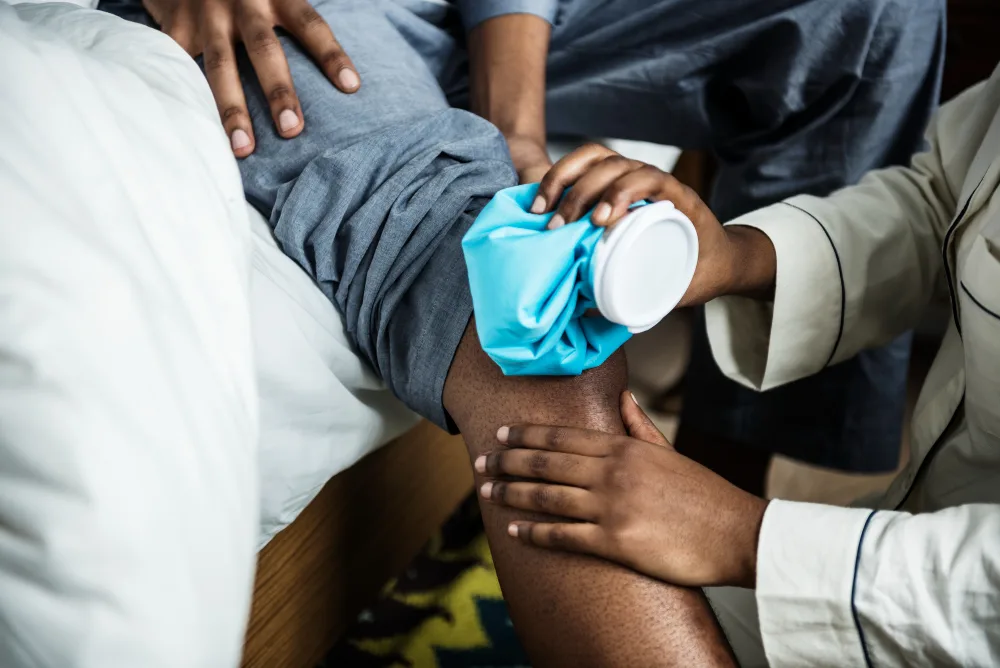POST OP CARE
What is Post-Operative (Post-Op) Care?
Post-operative care refers to the medical attention and support provided after a surgical procedure to ensure proper healing, minimize complications, and restore the patient’s health and function. This care can range from a few hours in minor procedures to weeks or months for major surgeries. It includes pain management, wound care, physical activity guidance, medication instructions, and regular follow-up visits.
The quality of post-op care directly affects the speed of recovery, risk of infection, and overall surgical outcomes.

Post-Operative Care Treatment In Kenya
Post-Operative Care Treatment Components
Post-op care is personalized based on the type of surgery but may include:
Pain management – with medications such as analgesics or anti-inflammatories
Wound care – cleaning, dressing changes, and infection prevention
Monitoring for complications – like fever, bleeding, or poor wound healing
Mobility assistance – early walking or physiotherapy to prevent clots and stiffness
Nutrition and hydration support – to promote healing
Medication review and instructions
Emotional and psychological support, especially after major or long-term surgeries
Scheduled follow-up appointments – for suture removal, review, or rehabilitation planning

Symptoms That Require Immediate Post-Op Attention
While some discomfort is expected after surgery, certain symptoms may signal complications:
Severe or worsening pain not relieved by medication
Redness, swelling, or pus at the surgical site
High fever or chills
Excessive bleeding or fluid discharge
Shortness of breath or chest pain
Leg swelling or calf pain (sign of a blood clot)
Nausea, vomiting, or inability to eat/drink properly
Dizziness, confusion, or fainting
Safe. Precise. Post-Operative Care Treatment In Kenya

Conditions That Require Post-Op Care
Post-operative care is essential after many types of surgeries, including:
Abdominal surgeries – hernia repair, appendectomy, hysterectomy
Orthopedic procedures – joint replacements, fracture repairs
Gynecological surgeries – laparoscopy, fibroid removal, D&C
Cardiac or thoracic surgeries
Neurosurgery
Cesarean sections or other obstetric procedures
Cancer surgeries – to support recovery and reduce risk of recurrence
Any outpatient or day surgeries
How Post-Operative Care is Managed
Post-op care begins immediately after surgery and involves:
Observation in a recovery room for vital signs and anesthesia effects
Instructions before discharge – including medication, activity, and wound care
Daily or weekly assessments depending on the procedure
Coordination with physical therapy or rehabilitation if needed
Home care or nursing support, especially for elderly or high-risk patients
Monitoring tools – such as pain scales, mobility scores, and wound checks
Risks of Not Following Post-Operative Care
Ignoring post-operative care instructions can result in:
Infections or delayed wound healing
Blood clots (deep vein thrombosis)
Prolonged pain or immobility
Surgical site complications (e.g., hernia recurrence)
Internal bleeding or fluid buildup
Readmission to hospital
Failure of surgical goals (e.g., persistent symptoms)
Emotional stress and reduced confidence in recovery
Ready to Take the Next Step?
Whether you have questions, need more information, or are ready to schedule a consultation, our team is just a message away. Let’s talk about how we can support your journey to better health through expert laparoscopic care.
